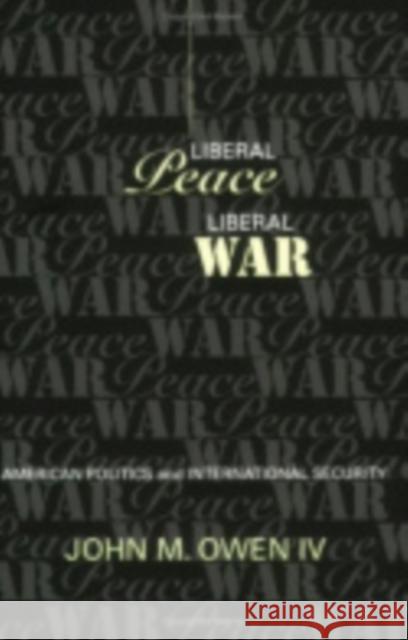Liberal Peace, Liberal War » książka
Liberal Peace, Liberal War
ISBN-13: 9780801486906 / Angielski / Miękka / 2000 / 264 str.
Liberal Peace, Liberal War
ISBN-13: 9780801486906 / Angielski / Miękka / 2000 / 264 str.
(netto: 158,59 VAT: 5%)
Najniższa cena z 30 dni: 122,17
ok. 22 dni roboczych.
Darmowa dostawa!
Liberal democracies very rarely fight wars against each other, even though they go to war just as often as other types of states do. John M. Owen IV attributes this peculiar restraint to a synergy between liberal ideology and the institutions that exist within these states. Liberal elites identify their interests with those of their counterparts in foreign states, Owen contends. Free discussion and regular competitive elections allow the agitations of the elites in liberal democracies to shape foreign policy, especially during crises, by influencing governmental decision makers. Several previous analysts have offered theories to explain liberal peace, but they have not examined the state.This book explores the chain of events linking peace with democracies. Owen emphasizes that peace is constructed by democratic ideas, and should be understood as a strong tendency built upon historically contingent perceptions and institutions. He tests his theory against ten cases drawn from over a century of U.S. diplomatic history, beginning with the Jay Treaty in 1794 and ending with the Spanish-American War in 1898. A world full of liberal democracies would not necessarily be peaceful. Were illiberal states to disappear, Owen asserts, liberal states would have difficulty identifying one another, and would have less reason to remain at peace.











